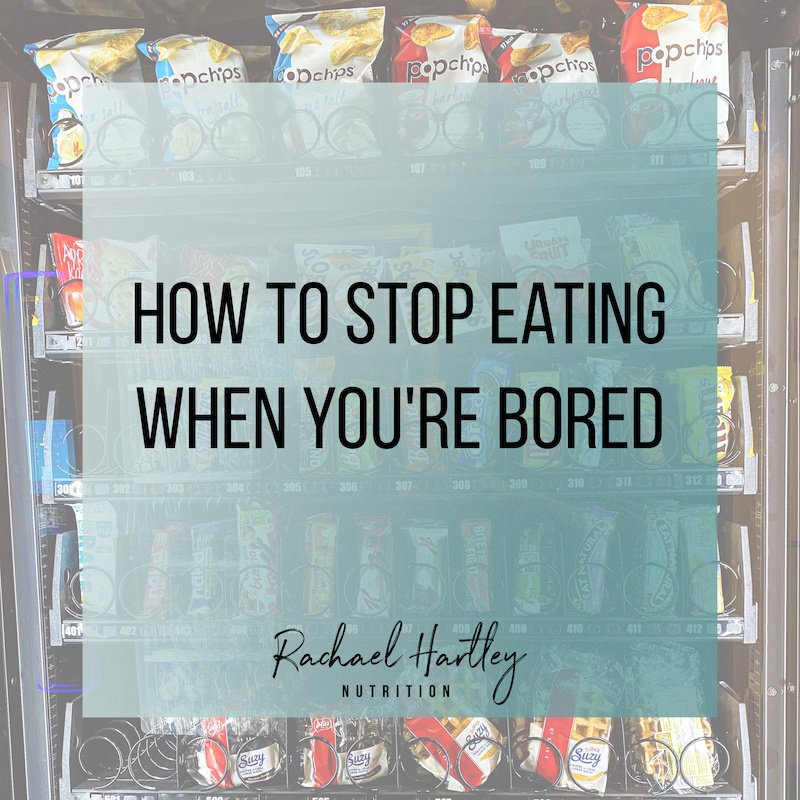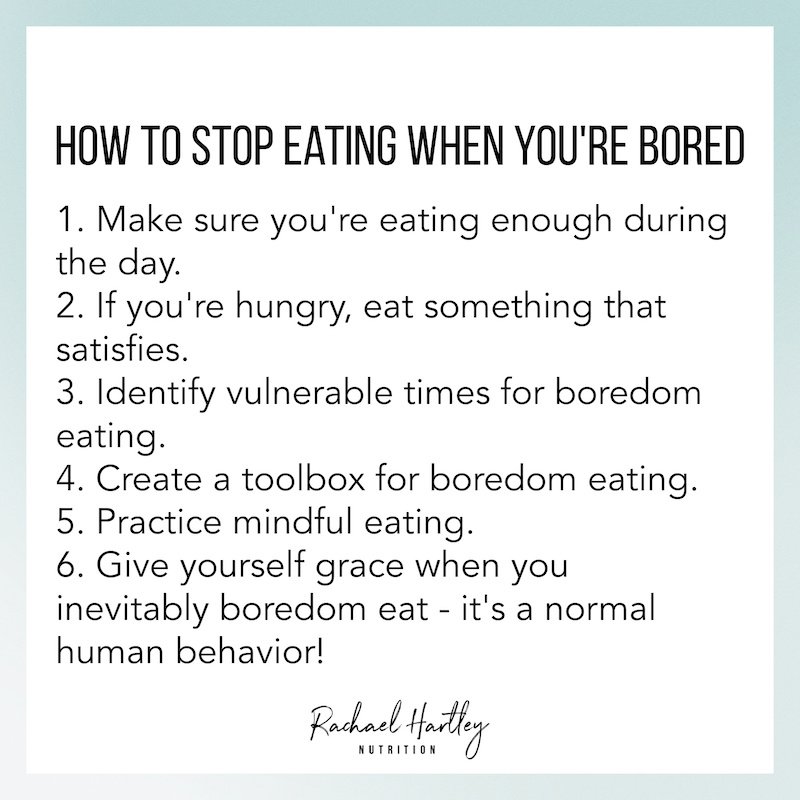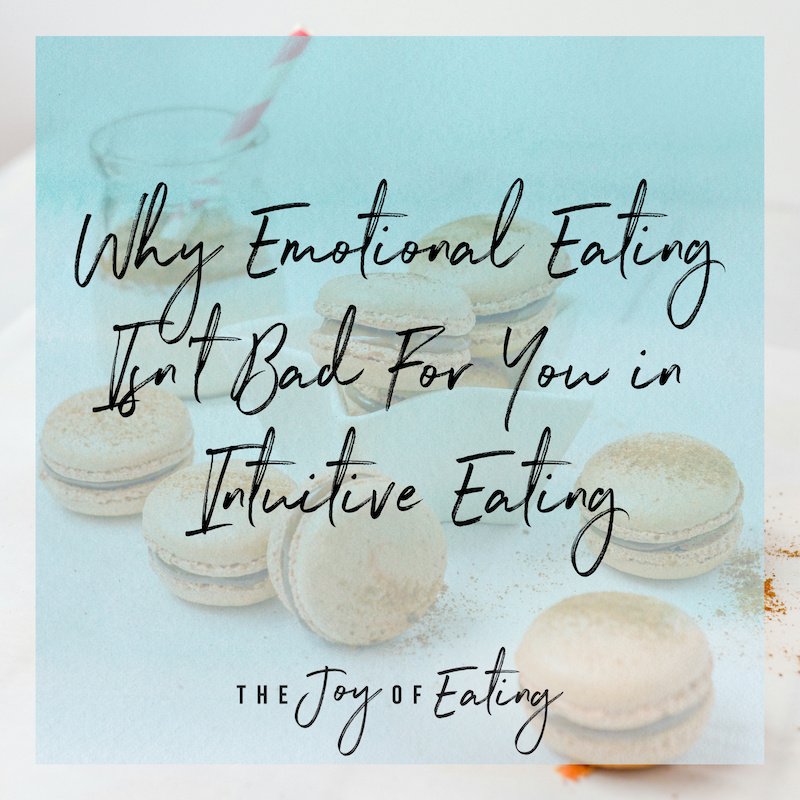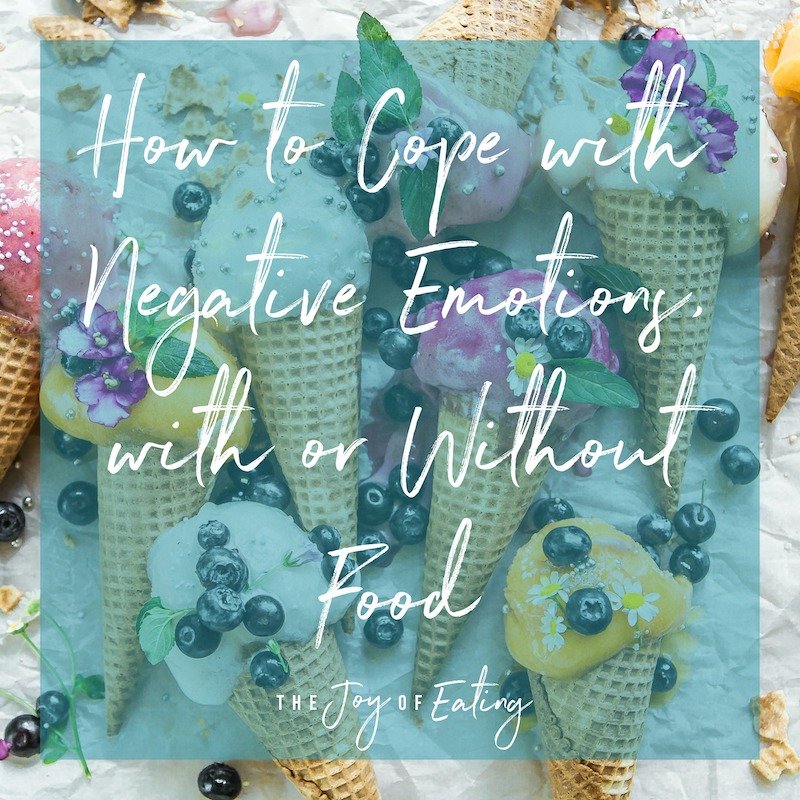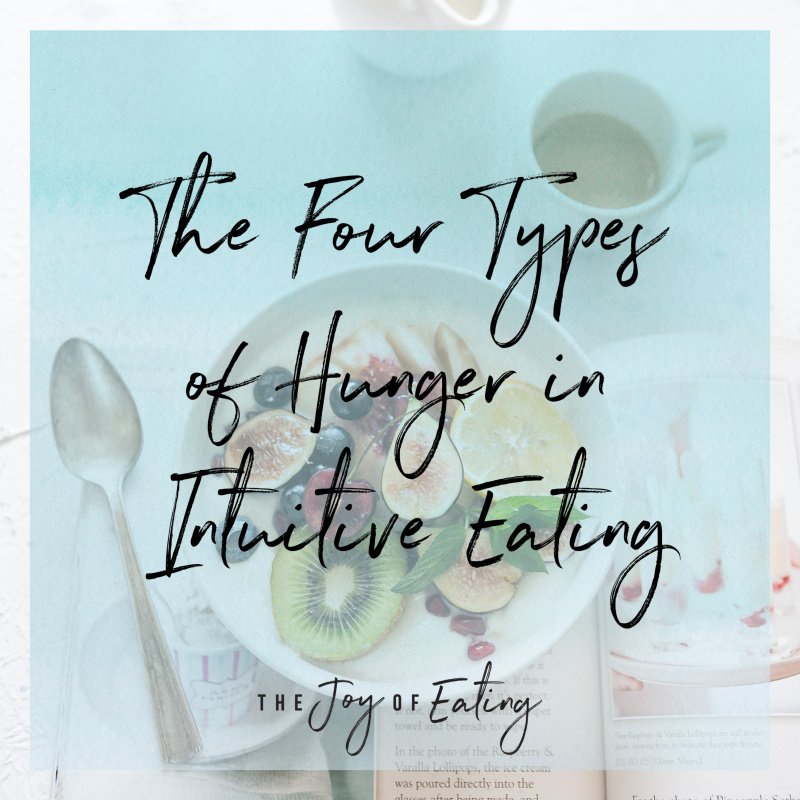How to Stop Eating When You're Bored
Catching yourself going back and forth to the kitchen when you’re feeling bored? Boredom eating is a common eating behavior people struggle with. This blog post discusses what boredom eating is and shares tips for how to stop eating when you’re bored.
Boredom eating is an incredibly common eating behavior, one I would venture to say pretty much everyone engages in at some point in their life. Personally, I did a ton of boredom eating in middle and high school, when I would come home from school and tried to fill time before begrudgingly starting my homework.
In the past few years, I’ve noticed more clients sharing that they’re struggling with boredom eating. As many of us moved from office environments to work from home, with more access to snacks and less access to other people and stimulation, food often filled the gap.
I think it’s really important to preface this post with a reminder that not only is boredom eating a common eating behavior, it’s also not a “bad” thing to do. There’s a ton of shame around boredom eating, shame that isn’t warranted - nor is it very helpful when you’re trying to reduce boredom eating.
However, it can become a problem when it’s the only tool you’ve developed to cope with boredom, or if it’s making you feel crappy by interfering with your ability to feed yourself well.
What Causes Boredom Eating?
Boredom eating is a type of emotional eating. Just like you might turn to food to help soothe stress or anxiety, or to cheer yourself up when feeling down, you might also turn to food to provide stimulation when you’re bored.
When I talk to clients about emotional eating, I often reference the widow of tolerance, a concept developed by Dan Siegel, a psychiatrist who has written and researched extensively on mindfulness, trauma, and parenting. The window of tolerance describes a “zone” of nervous system activation in which one is best able to function in everyday life. Some situations can hyperaruse your nervous system, aka activate the “fight or flight” response. When the nervous system is hyperaroused, one may experience panic, anxiety, fear, hypervigilance, or anger. Other situations can cause the nervous system to be hypoaroused, which is associated with depression, fatigue, emptiness, and disassociation. Hypoarousal is often caused by a sort of nervous system “burnout” from hyperarousal - think of the crash one might experience after a panic attack.
While the emotions I just described might sound intense for a blog post on boredom eating, it’s important to remember that nervous system activation occurs on a scale. Boredom is associated with hypoarousal, or being on the lower range of one’s window of tolerance, so it makes sense that you might seek something to activate your nervous system a bit and bring yourself back into the window of tolerance, or prevent it from dropping further. That’s where food and boredom eating comes in.
I share all this to help you appreciate the role that boredom eating can play, and the spectacular creativity us humans have when trying to regulate our nervous systems. I hope it gives you a bit of self-compassion for the times you’ve struggled with boredom eating!
How to Stop Eating When You're Bored
Make sure you’re eating enough during the day.
Sometimes boredom eating isn’t actually boredom eating - sometimes it’s real, physical hunger. Because hunger can present as fatigue or difficulty concentrating, it’s not uncommon to mistake snacking or grazing out of hunger for boredom eating. If you’re trying to stop boredom eating, first make sure you are eating enough throughout the day. While that amount varies from person to person, from day to day, in general that means eating something every 3-4ish hours, either a meal with fat, protein and carbs, or a snack with a couple different food groups. Here’s a blog post I wrote on how to plan a satisfying meal that may be helpful.
If you’re hungry, eat something that satisfies.
If you recognize that you’re actually feeling hungry, or if it’s just been a few hours since you last ate, try to eat something that’s actually satisfying. Often I see clients grab a handful or something, or a small snack that doesn’t really satisfy. While a small snack might be helpful when you’re feeling bored, it’s unlikely to satisfy. Sometimes what people identify as boredom eating is actually the grazing that occurs when they don’t choose something that’s satisfying enough to actually address the level of hunger they’re experiencing.
Identify vulnerable times for boredom eating.
Look back and identify times you are more likely to boredom eat. Here’s some common ones I hear from clients:
Studying for a test
After school
When completing boring tasks or a tedious project at work
At night before bed
When a partner or roommate is out of town
When you know times during the day that you’re more vulnerable to boredom eating, it’s easier to plan something in advance to provide alternative tools. Which brings us to my next tip…
Create a toolbox for boredom eating.
I’ve talked before about creating a toolbox for emotional eating. Since boredom eating is a type of emotional eating, this tool is helpful here too! Essentially, a toolbox is a list of other self care techniques, activities and tools you can utilize to cope with an uncomfortable emotion. I use the toolbox analogy as a reminder that there are lots of tools you can use, and some may work better for different tasks than others. Eating can be one tool in the toolbox, but just as you wouldn’t expect a wrench to fix everything that can go wrong in your house, we need to fill up our toolbox with other tools. Here’s some ideas:
Have a list of a few games you can play, like Wordle, a video game, crossword puzzles, or sometime similar.
Go outside for a walk, or walk your dog if you have one. In the spring/summer, I like to try to pay attention to what new flowers are starting to pop up, and which ones are fading away. Sometimes I’ll get really nerdy and whip out my plant ID app so I can learn the names and plan out our garden :)
Rewatch episodes from an old favorite TV show. Currently I’m on to Buffy the Vampire Slayer, which may I say, holds up incredibly well.
Call a friend you haven’t talked to in awhile. If you’re like me, there’s friends you’re close with and wished you talked to on the phone more often. Use boredom as a sign to give them a call!
Have a list of household tasks you’ve been meaning to do. Use that boredom as a time to cross off a task that perhaps isn’t important, but it’ll feel good to cross off your list (hello dusting the light fixtures!).
Practice mindfulness and mindful eating.
How many times have you boredom ate, but only realized it after the fact? It’s hard (impossible?) to change a behavior you don’t realize you’re doing. Practicing mindfulness and mindful eating skills can help you identify when you’re engaging in boredom eating so you can actually have a chance to stop eating when you’re bored. Here’s a link to a 101 blog post I wrote on mindful eating and a post on how to start a mindfulness meditation practice that may be helpful.
Give yourself grace when you eventually do boredom eat.
Remember, boredom eating is normal human eating behavior. When it is harming versus helping, it may be a behavior you decide to address. But as a human being, you will almost certainly turn to food as a way of coping with boredom again. The key is greeting it with grace, and getting curious rather than judgmental about it.
If you’re struggling with boredom eating, or any other kind of emotional eating, and need more guidance, we provide virtual intuitive eating coaching throughout the US. Read more about our services and philosophy here, and reach out if you’d like to work together!

